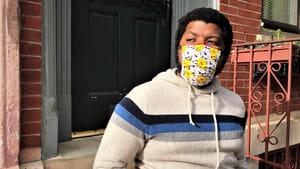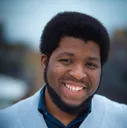Stay in the Loop
BSR publishes on a weekly schedule, with an email newsletter every Wednesday and Thursday morning. There’s no paywall, and subscribing is always free.
When it hurts to feel safe at home
Who will be able to return to normalcy once quarantine is over?

I’ve been training for quarantine all my life, and that’s frustrating. Yes, I’ve laughed at the memes about how this is an introvert’s paradise—especially the ones about gamers being ready for this moment. I spent more time in high school and college on my PlayStation 2 than I did canoodling, participating in extracurricular activities, or mingling at parties. But my introversion—or at least my aversion to interacting with people in the real world—isn’t a choice. It’s a defense mechanism against a reservoir of fears that have no solutions.
Postponed metamorphosis
For the record, I’m not antisocial. Prior to quarantine, I was adamant about getting out more. I was out dancing until the wee hours of the night. I was cultivating relationships new and old over routine happy hours, game nights, concerts, and trips to the theater. I booked my first trip across the Atlantic and had plans to hit several networking events and conferences across the States. Before the shutdown, I won a 2020 Next Generation grant from the Lenfest Institute for Journalism, to attend the International Symposium for Online Journalism in Austin. I loved the social butterfly I was finally becoming after decades as a nervous chrysalis. Then, in a blink, my metamorphosis was postponed.
The universe was like, “Go to your room!” and I quietly obeyed. I found comfort in quarantine that was uncomfortably familiar. I had been hiding inside for years, because being outside as a Black person is always a huge risk. I don’t like how safe I feel at home.
“Stay home”?
In the last few weeks, the killings of Ahmaud Arbery and Breonna Taylor became prominent topics. It is nothing new, and it hurts deeper each time another Black life is taken like this. It’s exhausting, heartbreaking, and terrifying. I can’t go for a walk (or even be safe in my own home) without the distress that today might be the day for me.
Sometimes, “stay home” sounds a lot like “go back to where you came from.” Like I don’t belong “out” in the first place, even before this pandemic. While COVID-19 is striking legit fear and panic in people all over the world, for many people like me, it’s just another unpredictable threat to our bodies—something we have, unfortunately, grown accustomed to.
Who do the rules apply to?
Despite a lack of evidence that the pandemic is contained in the US, states are moving to reopen. This comes much to the chagrin of many, while others can’t wait to get back to normalcy. Overwhelmed, I took an afternoon walk on a recent Sunday to ease my mind. I returned home more apprehensive than I had been when I left.
To start, I camped out at a park—as far away from everyone else and their dogs as possible—to take in some sun. A police officer pulled up at the corner, and I felt her eyes on me. I stole glimpses back at her, but it didn’t take much affirmation to know for sure. Being watched is unmistakable once you get to know the feeling. But maybe I was in my head, right? These police officers were only doing their job, right? Whatever the case, it was enough to prompt me to leave and take a walk up to Old City instead. I wanted ice cream—a reliably safe albeit fleeting mental oasis.
I passed another park on my way, and it was packed. Large groups gathered, congregating in lawn chairs and on beach towels, wearing sunglasses and smiles with abandon. No cops here! To quote the great Chris Rock, “It’s all right, ‘cuz it’s all white.” The rules don’t apply to them, so it’s okay.
I kept walking. I turned the music in my headphones up and adjusted my mask. I lowered my head whenever someone passed me. Meeting the eyes of strangers is harder these days. Them crossing the street to practice physical distancing nicks an old wound. People have been crossing the street away from me since adolescence. But maybe I was in my head, right? The adorable Pikachu mask I wear ought to diffuse their trepidation about me anyway, so it’s okay. There’s nothing wrong with internalizing other people’s irrational fears about me for the sake of their safety.
The privilege of normalcy
When I made it to Old City to pick up my pint of scoops, a patron was knocking aggressively at the shop’s closed doors. She signaled for a free spoonful of ice cream to taste, having expressed to her partner her frustration that they were sold out of so many flavors. Things must have been dire, with so few options afforded to her. But after tirelessly exercising her privilege and successfully acquiring a sample, she left without purchasing anything, rumbling in discontent.
As insignificant as this encounter might seem, it was a big deal for me. It was the sprinkles on top of what I fear a post-quarantine world is going to look like. Cabin-fevered, privileged socialites will crowd restaurants, parks, and shops. They assume everything will be back to normal, their jobs and their health still intact.
But when quarantine ends, and life has gradually returned to some semblance of yesterday, normalcy will be a privilege. Many people will be without work. Artists with gutted resources will struggle. Black and brown people, already disproportionately hit by the illness, will experience tightened marginalization and heightened discrimination. I know I’ll be spending an extended amount of time in my own personal quarantine, not only because states are reopening prematurely, but because America’s pervasive culture of denial, self-importance, and capitalism will swell. The AIDS crisis revealed how homophobic, racist, and xenophobic this country is, and COVID-19 has cast more light on our true colors. None of this about America is new. But it’s alright, ‘cuz it’s all white.
Well, at least I have ice cream and my PlayStation.
Sign up for our newsletter
All of the week's new articles, all in one place. Sign up for the free weekly BSR newsletters, and don't miss a conversation.

 Kyle V. Hiller
Kyle V. Hiller